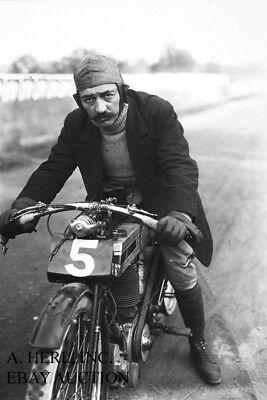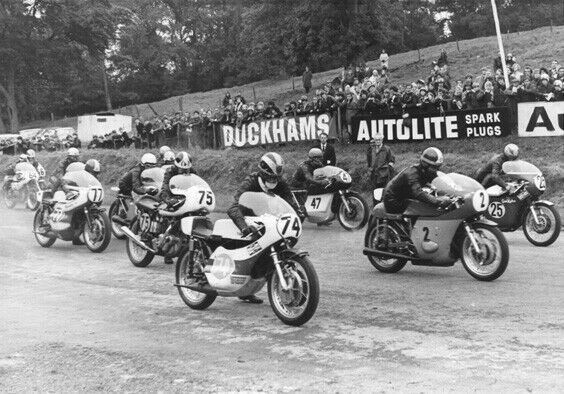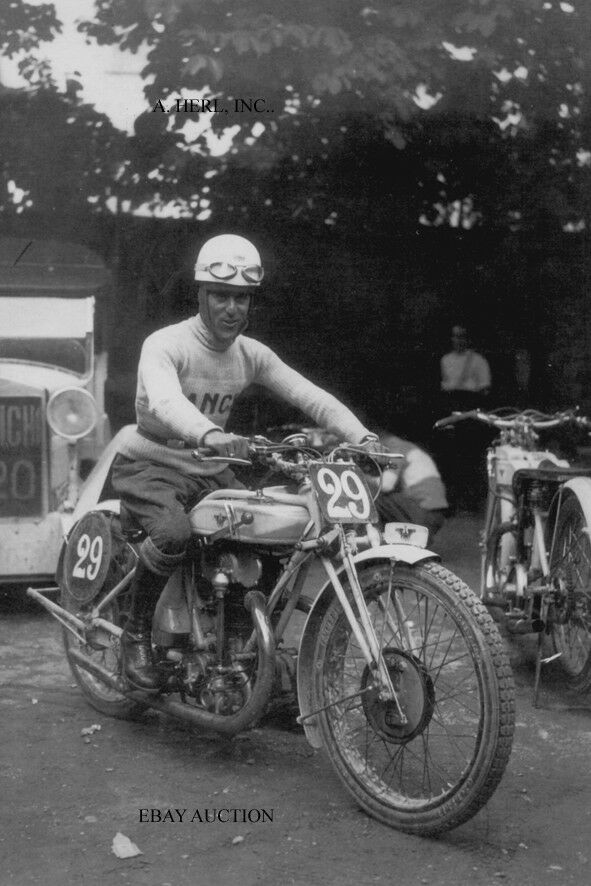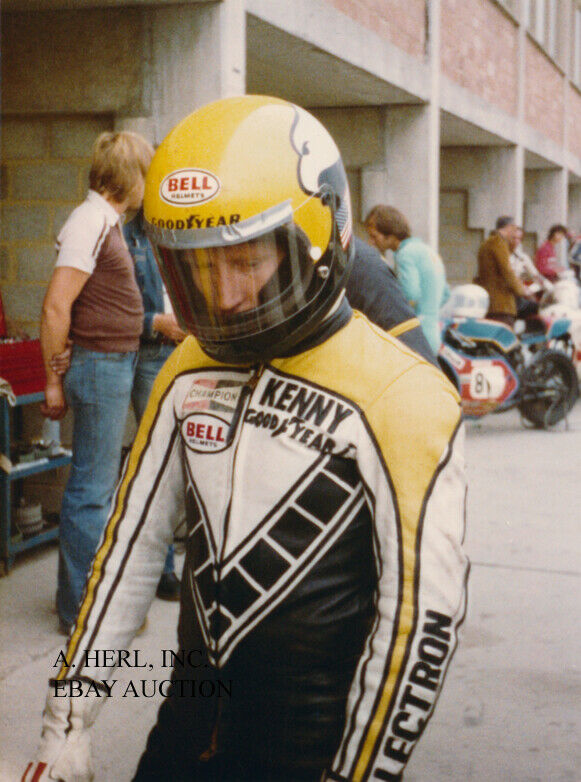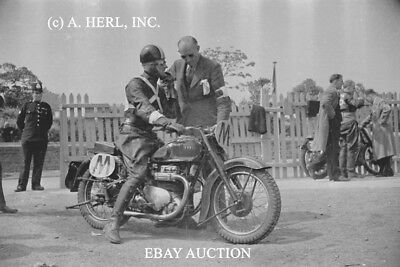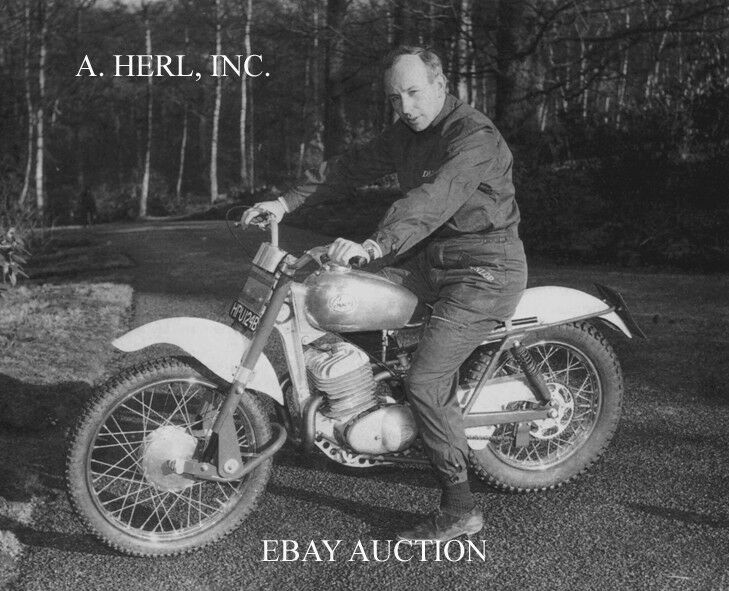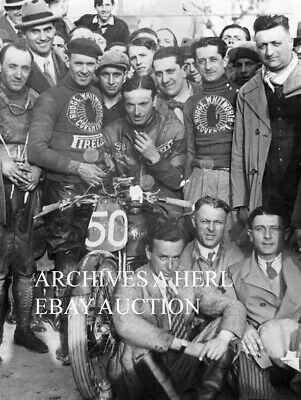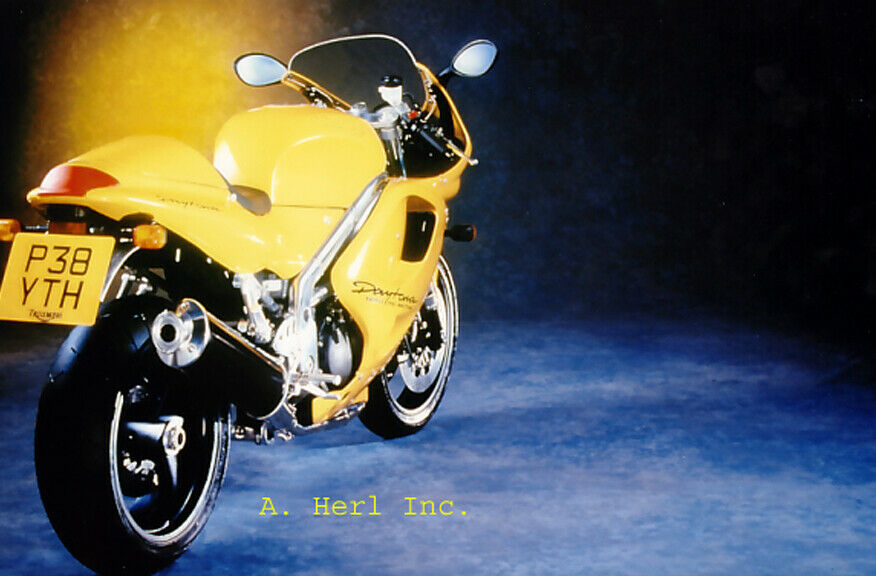-40%
Bimota DB6 Ducati Blubianco motorcycle photo press photograph
$ 5.14
- Description
- Size Guide
Description
A superb and rare photo of theBimota DB6 Blubianco motorcycle
.
Bimota
was founded in
1973 in
Rimini, Italy by
Bianchi
,
Morri
and
Tamburini
, with the name being a portmanteau of the first two letters of each company name:
BI MO TA
. Because the state of frame design and overall packaging was poor, Bimota concentrated initially on building high-quality motorcycles around existing engines. If Massimo Tamburini had not crashed his Honda 750 Four at the Misano racetrack in September 1972 the legend that is now Bimota might never have existed. After recuperating from three broken ribs he sets about the construction of a tubular steel frame to cope with the horsepower being produced by the engines of the big Japanese manufacturers. This frame both reduced the weight of the original Honda and lowered the centre of gravity and so with the HB1, of which only ten were made, the story begins. Even though the name Bimota derives from the initials of the three founders, it was the passion and engineering excellence of Tamburini that was the driving force behind the company. The racing frames Bimota started to produce, such as the YB1, YB2, YB3, HDB1, HDB2 and SB1 became a "must have" for all serious racers and quickly altered the perception of what a motorbike should be
. In 1977 Bimota identified a new market niche and started producing exclusive high performance bikes such as the SB2, which is featured on the photo.
Some of these models are sold in kit form, but it is the development of the now legendary KB1 that creates the major turning point in the commercial success of the Company. The 1980’s provided major success for the small
Rimini
based factory both on the track and through the development of a range of dream machines for the road. But it was also a period of transition with Tamburini leaving the company in 1983 to be eventually replaced by the talented young engineer Federico Martini who proceeded to write a whole new chapter in the legendary story of Bimota. His experience working with Ducati, leads to the development of Ducati 750 Pantah powered Bimota DB1 , like as shown on the photo of the auction, as well as the innovative aircraft alloy frame "SCATOLATO", so far ahead of its time that its basic concept is used by Bimota throughout the nineties. The other models produced during this decade include the HB2, HB3, SB3, SB4, SB5, YB4ei, YB6, YB6 Exup, YB6 Tuatara, KB2, KB3, DB1se and DB1rs. But it is on the racetrack with two World Championships that Bimota and Martini really make their mark. The first in 1980 for Jon Ekerold in the 350cc championship and the second in1987 for Virginio Ferrari on a Bimota YB4 R in the TT F1 World Championship. Federico Martini leaves Bimota at the beginning of the nineties and is replaced as Technical Director by Pierluigi Marconi whose close collaboration with Martini started when he was still a student. Under his technical supervision Bimota concentrates mainly on the manufacture of models with aircraft alloy frames "SCATOLATO" such as the YB8, YB8e, YB8 Furano, YB9 Bellaria, YB9sr, YB9sri, YB10, YB10 biposto, YB11, DB2, DB2sr, DB2ef, DB3 Mantra - SB6, SB6R, SB7, SB8R Supermono, Supermono biposto and the 500 Vdue. The model however, that characterises the genius and innovation of Pierluigi Marconi and Bimota during this period, is the hub steered TESI 1D created in various versions including the 1/D, 1/D SR, 1/D ES, 1/D EF. The nineties also see the departure of the last remaining Bimota founder when in 1993 Giuseppe Morri leaves to be replaced as General Manager by Walter Martini. Under Martini the company doubles production and in 1995 produces 1,250 bikes. In 1996 Bimota commemorates its 25 anniversary with a major event at the Santamonica track in Misano where "bimotisti" flock from all over the world to join in the celebrations. Towards the end of the 1990’s the first all BIMOTA bike goes from the drawing board into full production the 500 Vdue. Designed by Robbiano and engineered by Marconi, this bike was created as a Moto GP bike for the road. Powered by a 500 cc twin-cylinder Bimota engine, customers were immediately clamouring for delivery. Such intense demand leads Bimota to start delivery before full development is completed ultimately leading to a complete recall of all bikes and a financial crisis for the company. The 2000’s began well for Bimota with the company under new management and new models well-received at the most prestigious bike shows worldwide. The top model during this period is the SB8R produced in the two versions, fibreglass and carbon fibre. With the SB8R, Bimota returns to its roots with an innovative frame constructed in aluminium and carbon fibre encasing a powerful Suzuki engine. After 11 years of absence, Bimota returns to the racetrack taking part in the Super-bike World Championship. The team under the management of Virginio Ferrari with technical director Franco Farné and rider Anthony Gobert are classified 12th in the first and second races in Kyalami (
South Africa
). Two weeks later in the Australian GP at Phillip Island Gobert rides to an amazing victory making it the best Easter ever for all the "bimotisti" around the world. Despite these fantastic results on the track, Bimota spirals into serious financial crisis as the Vdue engine project launched in the nineties goes horribly wrong. The factory falls into bankruptcy and closes, fortunately only temporarily, the first phase of the legend ends. After many false dawns Bimota is finally resurrected in 2003 and a new management team installed with the aim of building on the heritage of the Bimota name and restoring the great traditions that have made the company a legend in motorcycle design. The first positive results of this endeavour can be seen with the "Motorcycle Design Award" in the Supersport category at the Intermot Show being won by the new Bimota model, the DB5. Another award to add to the many others that grace the walls and trophy cabinets of the company's historic
Rimini
factory.
This
non period
photo reflects a very interesting and historic piece of motorcycling and Bimota history. Therefore it is printed in a nice large format of ca. 8 x 12" (ca. 20 x 30 cm).
Shipping costs will only be $ 7.00 regardless of how many photos you buy. For 5 or more photos, shipping is free!
(Note: A. Herl, Inc. does not appear on photo, for ebay purposes only)
No copyright expressed or implied. Sold as collectable item only. We are clearing out our archives that we have gathered from various sources.
All items always sent well protected in PVC clear files
and board backed envelopes.
We have photographs that came from professional collections and/or were bought from the original photographer or press studio! They are all of professional and excellent quality.
After many decades of professionally collecting photographs and posters we are clearing out our archives. They make the perfect gift and are perfectly suited for framing. They will look gorgeous unframed and will be a true asset nicely framed with a border. They are a gorgeous and great asset in every home, workshop, workplace, restaurant, bar or club!
First come - first served. And you can always contact us for your requests. Please ask any questions before the auction ends.

